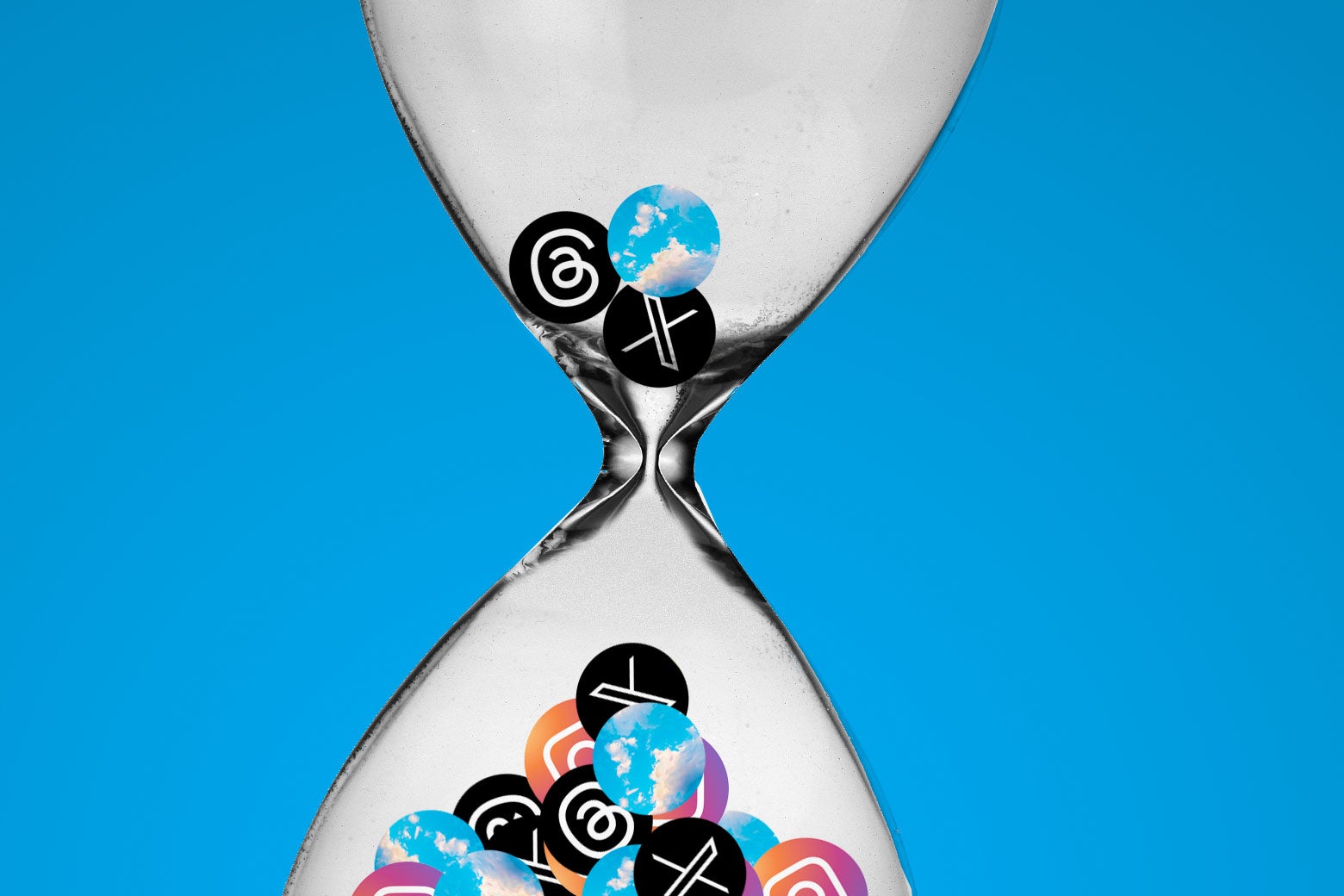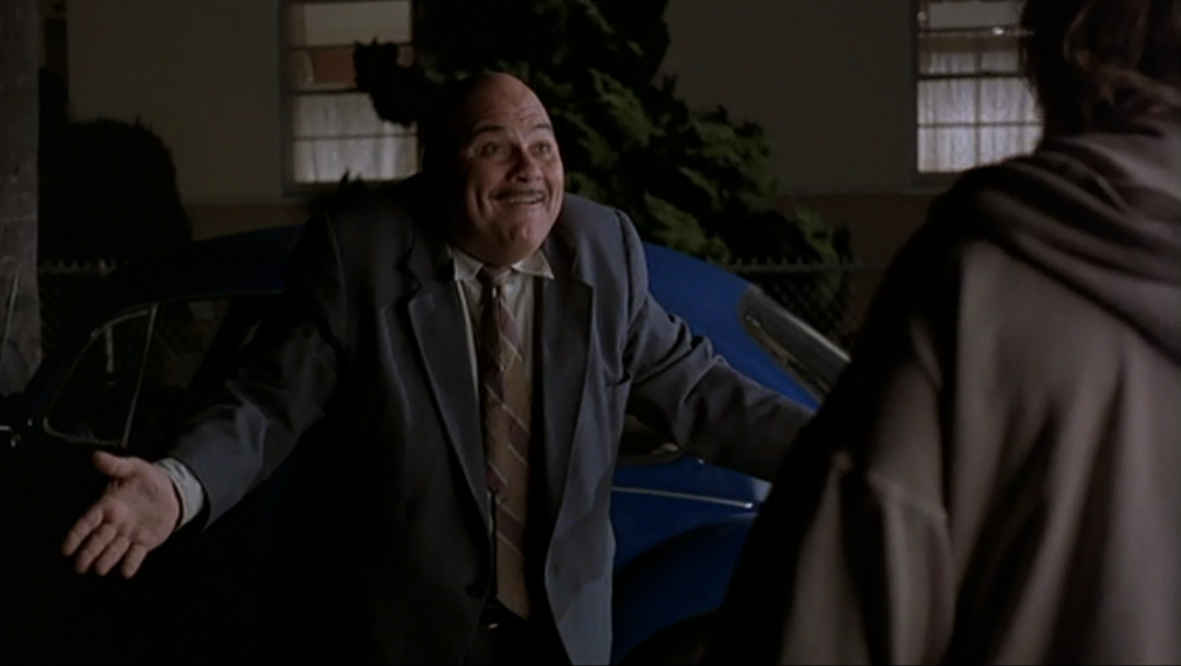- cross-posted to:
- cross-posted to:
TL;DR: The author speculates the death of Twitter will lead to a “clout reset” where people can rise to internet stardom on merit alone.
Absolutely laughable. Saved you a click.
This would make excellent satire, but it’s pretty dismal journalism.
Ever since that day, I’ve consistently correlated success with the fluctuating number in my follower count. In fact, I would argue that every millennial who works on the internet has internalized the belief that resonance on Twitter is the only way to unlock progressively more illustrious opportunities—it somehow seems more relevant than your degree, your scoops, and even your endorsements.
Speak for yourself, please.
Many millennials who ‘work on the internet’ have understood in the past that Twitter follower counts did constitute a sort of abstracted measure of relevance, like pop culture equivalent of how often an academic article is cited by other academics. There was quite a while where that was, unfortunately, true: for example, your measure as a PR professional was tied to your ability to use your professional skills to boost your personal accounts. It was far from the only thing that counted, but it was certainly an excellent networking tool and having impressive high scores would result in more opportunities, better opportunities, and less hunting for them. There absolutely was an expectation that communications or marketing people would leverage their skills for their accounts, that they would show off what they could do for potential employers within the confines of their own internet footprint.
You could still get work without that, I still got work without that - but work would come to you if you had an impressive social portfolio, not just on raw follower counts but on things like content and engagement as well. The total sum of your social media and online presence was the portfolio of communications or media field, same way designers are asked to provide examples of past work.
And that’s still true - it’s just less and less likely to include someone’s twitter in that assessment.
I think that’s why Elon’s reign of terror has been so bitterly ironic: Everything we’ve been taught about Twitter—and, frankly, social media in general—has proven to be an enormous lie. It was always volatile, and regrettably, we made it the locus of our careers.
Things can be true in the past and false in the present. What this particular person was taught in the past was true at the time of teaching. And then this crazy thing called “change” occurred and it’s no longer true. Except, what he was taught - that conventional wisdom holds that journalists need their own personal brands - remains true. The secondary coaching, that a Twitter presence is part of that branding, is not necessarily true but also not abstractly false either.
That the author struggles with the very concept of change, feels they were promised that Twitter would be permanent, and seems to believe that people who are successful now because of twitter activity then are somehow going to wind up on the streets is hilarious, if perhaps in a not particularly kind way.
Everyone he talked to has a secure career or market position. Sure, they got there via twitter, or they feel twitter helped them achieve that - but they will be fine. Some of them might take earnings hits or need to make some uncomfortable pivots to off-twitter platforms, but none of those folks are teetering on the edge of a cardboard mansion lifestyle after sinking clearly-fruitless hours into twitter boosterism.
Lorenz predicts something of a “Great Clout Reset” on the horizon—everyone emerging from the rubble, starting over at square one—and frankly, she can’t wait to see what happens. […] Maybe that’s the silver lining. Twitter might be dying, but maybe afterwards, we can try to become superstars all over again.
Oh look, we can see how the author wound up thinking that Twitter was all-important and utterly permanent. They’re doing it all over again; and in ten years we’ll get the exact same article about whatever platform they think is actually the Real Deal right now, complaining about how it inevitably failed and Lorenz steered them wrong with bad career tips.
When I entered the journalism program at the University of Texas in 2010, I was instructed by one of the first professors I ever had to start a Twitter account. This was during the glorious dawn of the Web 2.0 revolution—an era of unbridled Obama-era optimism—and as the media made its digitized transition, conventional wisdom said that reporters needed to develop their own bespoke personal brands. Ever since that day, I’ve consistently correlated success with the fluctuating number in my follower count.
Wow. First of all, who starts college in 2010?! Let me tie an onion to my belt before we go further. Okay, secondly, that a professor required them to have a Twitter account is hilarious and makes perfect sense. What most people don’t know is “journalism” as is taught in University of Texas and other broadminded institutions of higher learning, is essentially public relations. How to talk like a newscaster. How to write like an advertiser. Why all those studies that television is bad for people are bunk. Etc. Anyway, that’s where our author is coming from.
I think that’s why Elon’s reign of terror has been so bitterly ironic: Everything we’ve been taught about Twitter—and, frankly, social media in general—has proven to be an enormous lie.
Well . . . yeah. Poor kid, never even had the chance to see what a sucker deal Twitter was from the outset.
I’m not sure what the curriculum for the University of Texas’ journalism program is today, but I doubt a compulsory X account is still mandated.
I wouldn’t be too sure. The journalism program at UT is probably the same as it was in the 80s. In many ways, quite literally.
So what does this mean for the countless people who bought the hype? Who ground away at their Twitter accounts—triangulating pockets of virality until their followers doubled and tripled—putting the almighty bird at the center of their professional and personal aspirations? After all of their years stoking the algorithm, they’re the ones left holding the bag.
Aye, there’s the rub. What does it mean for people who bought the hype? Who found out it’s a bunch of flaming bullshit? After pouring years into feeding their lives into it?
So as far as the article goes: Pros - well written. Cons - some people never knew twitter was bullshit? What? Ugh.
But there’s an interesting implied question - what do Trump people do when they find out everything the guy’s ever said is utter bullshit? Well, we know they don’t do anything. Sometimes they double-down. But that’s part and parcel of modern republiQanism. What do ostensible liberals do when they discover something they believed in is bullshit? Like Twitter?
Indeed.
I don’t know I’ve never had a degree in journalism but the idea of having to set up a Twitter account be compulsory to take an academic qualification seemed bizarre to me, which was the main thing that stuck with me after reading this article.





